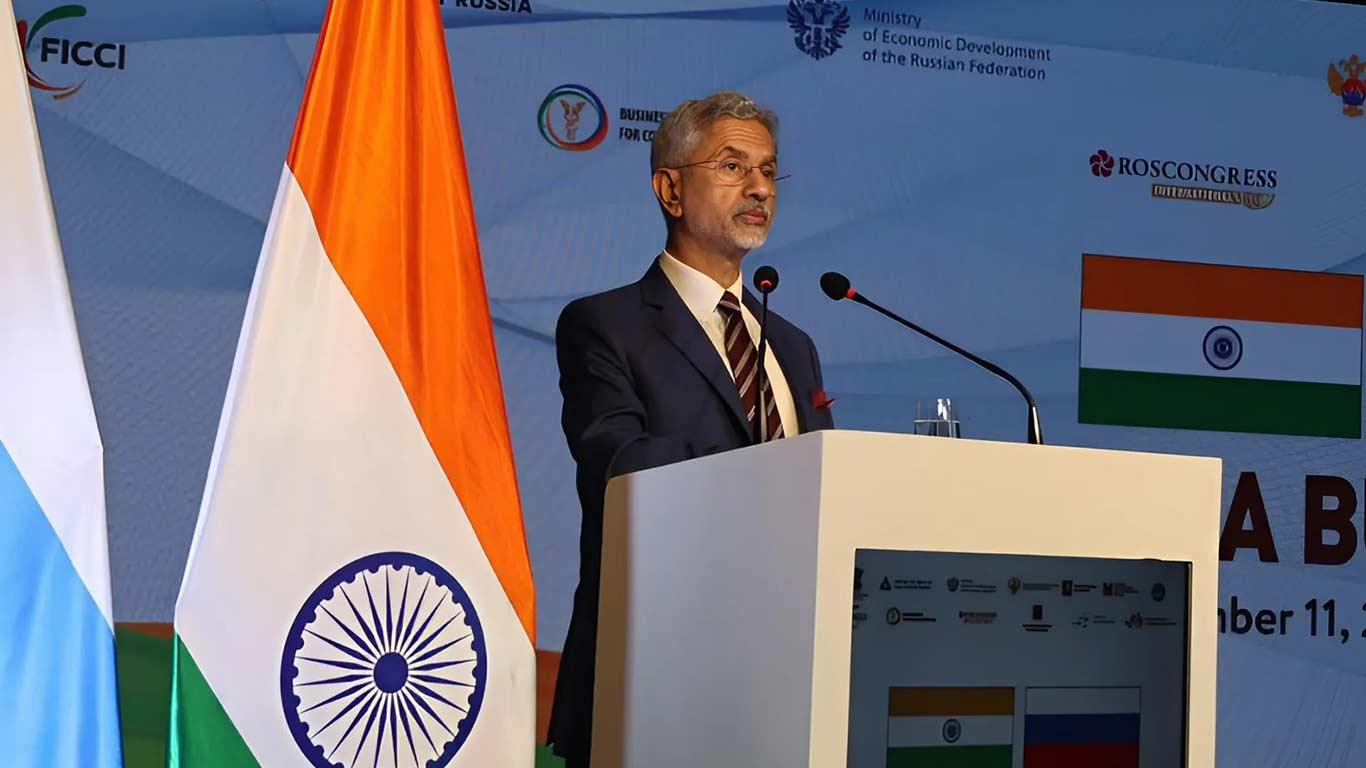
India-Russia Trade Imbalance Requires Urgent Action, Says External Affairs Minister
The deficit has reached USD 25.11 billion in April-August of the current fiscal year, with Indian exports to Russia at USD 2.24 billion while imports surged to USD 27.35 billion.
The substantial trade imbalance primarily stems from crude oil imports, as Russia has become India's largest oil supplier following Western sanctions over the Ukraine conflict.
Russian oil became particularly attractive to India after European nations reduced their purchases from Moscow in the wake of the February 2022 invasion of Ukraine.
Speaking at the forum, Jaishankar emphasised the need to eliminate non-tariff barriers and regulatory hurdles to improve trade balance.
While bilateral trade currently stands at USD 66 billion, he expressed confidence in achieving the USD 100 billion target, describing it as "more than realistic."
The minister also advocated for trade settlements in national currencies, highlighting the effectiveness of Special Rupee Vostro Accounts as an interim solution.
The recent meetings between Prime Minister Narendra Modi and President Vladimir Putin at the Annual Summit in Moscow and in Kazan have provided strategic direction for the partnership, according to Jaishankar.
He emphasised that collaboration between India's projected 8 percent growth rate and Russia's natural resources and technological capabilities would benefit both nations and the global community.
The minister highlighted three key connectivity initiatives requiring attention including the International North-South Transport Corridor, Chennai-Vladivostok Corridor, and the Northern Maritime Route.
He acknowledged existing challenges in banking, payments, logistics, and market access, emphasising the need for mutually acceptable solutions.
Jaishankar noted India's significant role in international energy markets, including oil, gas, coal, and uranium, as well as fertiliser demand.
He suggested that both countries could address demographic challenges through focused initiatives tailored to the Russian market, while also emphasising the importance of non-economic connections through education and cultural exchange.
(KNN Bureau)
Legal Disclaimer:
MENAFN provides the
information “as is” without warranty of any kind. We do not accept
any responsibility or liability for the accuracy, content, images,
videos, licenses, completeness, legality, or reliability of the information
contained in this article. If you have any complaints or copyright
issues related to this article, kindly contact the provider above.


















Comments
No comment